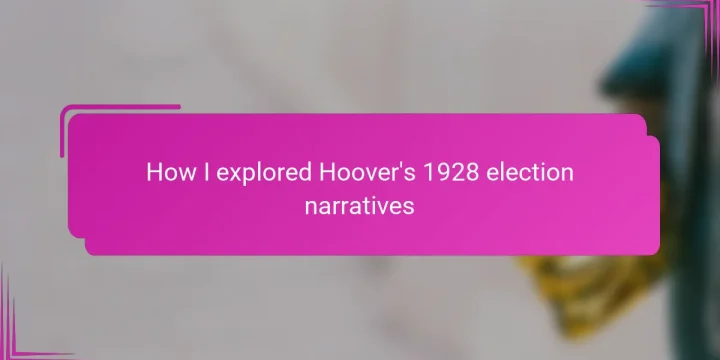
Key takeaways Herbert Hoover's 1928 campaign capitalized on economic optimism during the Roaring Twenties while subtly addressing cultural tensions surrounding his opponent, Al Smith's Catholicism. Hoover's strategic use of emerging media allowed for effective narrative control, positioning himself as a trustworthy leader amidst societal change. The campaign highlighted the importance of emotional connection with voters, showing that elections are influenced by feelings as much as policies. Lessons from Hoover's approach suggest modern campaigns could benefit from a nuanced handling of social issues rather than overt confrontations. Introduction to US Republican Campaigns US Republican campaigns have always fascinated me because they blend strategy, ideology, and the pulse of the American electorate in a unique way. I often find myself wondering: what drives the energy behind these campaigns, and how do they…


